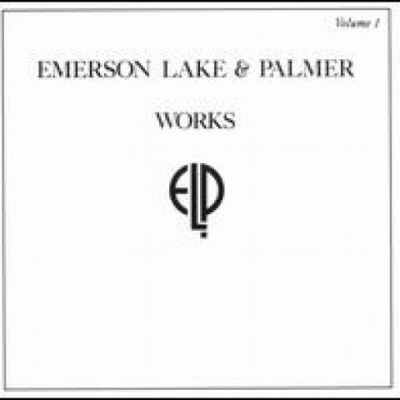
Works, Vol. 1
by Bruce EderThough no one talked about it at the time of its release, this album reflected a growing split within the group. Originally, the trio's members, tired of sublimating their musical identities within the context of ELP, each intended to do a solo album of his own. Reason prevailed, however, probably aided by the group's awareness that the combined sales of the solo albums issued by the five members of Yes the previous year were a fraction of the sales of Yes' most recent records. The result was this double LP; essentially three solo sides and one group side, it is the most complex and demanding of the group's albums. Keith Emerson's "Piano Concerto" is on the level of a good music-student piece, without much original language. Where Emerson, in conjunction with his conductor and co-orchestrator, John Mayer, succeeds admirably is in writing beautiful virtuoso passages for the piano. Greg Lake's romantic songs mark the final flowering of his work in this vein -- and perhaps its going to seed, since "C'Est la Vie," the featured single, says little that "Still...You Turn Me On," from their previous album, didn't say better and shorter. Carl Palmer's side is the most accessible of the three solo sides for casual rock listeners, rocking hard on the classical adaptations and featuring Joe Walsh on lead guitar for one song. The group's two tracks, "Fanfare for the Common Man" and "Pirates," cover a lot of old ground, albeit in ornate and stylish fashion. Having used Copland's "Hoedown" as a concert showstopper for four years, the trio takes "Fanfare" to new heights of indulgence, and it actually works, up to a point -- like CCR's extended version of "Heard It Through the Grapevine," this is just a little too much of a good thing.
